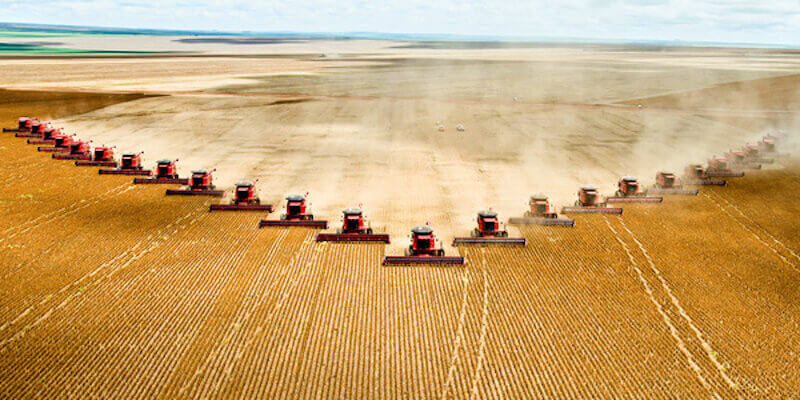
Mechanized agriculture, or machine agriculture, entails the use of machinery powered by fossil fuels, aiming to boost agricultural productivity and efficiency. It's the dominant method in today's farming practices and has revolutionized the cultivation, processing, and distribution of food, profoundly impacting both local farming and global food supply chains.
Before the mechanization era, farming required substantial manual labor with approximately 80% of the global population involved in agriculture. The usage of traditional farming tools, animal-drawn plows, and sheer human effort for crop cultivation and harvest was commonplace, inevitably restricting the acreage that could be farmed. As global population increased, manual farming was unable to keep up with food demands.
This narrative changed when the industrial revolution introduced mechanized farming tools like tractors, combine harvesters, and seed drills. The shift dramatically increased farming efficiency, productivity, and yields, enabling farmers to cultivate larger plots of land more effectively and expedite the harvest.
The impact of mechanized agriculture extended beyond farming operations. It ushered in an era of exponential growth in global food production, facilitating increased food availability and worldwide distribution. Advanced machinery and technology in farming led to streamlined supply chains, improved logistics, efficient food processing and packaging, and the development of extensive distribution networks. This shift has resulted in new food products and creative marketing strategies targeting consumers.

Despite its numerous advantages, mechanized agriculture relies heavily on fossil fuels, raising significant concerns about its long-term sustainability. The extensive energy requirements for mechanized farming, including the production and transport of fertilizers and pesticides, have contributed to increasing greenhouse gas emissions and environmental degradation. Moreover, mechanized agriculture has been implicated in the overexploitation of natural resources, including soil and water.
In 2020, the United States' agricultural sector reportedly consumed 2.5 billion gallons of diesel fuel, primarily for powering farm machinery like tractors, combines, and irrigation systems. The use of gasoline and propane for farm equipment and building heating also contributes to the sector's substantial fossil fuel consumption.
Increasing concerns about our food's origins have sparked a significant shift towards sustainable agriculture and organic farming, a trend evident both nationally and globally. This transition has stimulated the development of innovative farming techniques and technologies, including those employed by companies like Crop Circle Farms. These approaches aim to reduce the environmental footprint of farming and increase food production efficiency.
Crop Circle Farms implements precision agriculture, a method that monitors and accurately dispenses fertilizer and liquid nutrients, providing a cost-effective, resource-conserving solution without sacrificing productivity. While mechanized agriculture has significantly influenced farmers and global food production, increasing agricultural industry efficiency and productivity, it has also triggered worries about sustainability, environmental harm, and food safety. Crop Circle Farms considers this an important issue, advocating for collaboration between farmers, policymakers, and consumers to ensure food is produced in a sustainable, safe, and ethical manner.
There has been a growing movement towards sustainable agriculture and organic farming. Circle Farms has developed a land husband system that significantly reduces the environmental impact of farming without the use of fossil fueled machinery.
Crop Circle Farms is a type of precision agriculture that monitors and disperses fertilizer and liquid nutrient in a cost effective, resource saving way without sacrificing production. In summary, mechanized agriculture has had a profound impact on both farmers and world food production.
Ready to transform your land into a high-yield, sustainable farm? Let Crop Circle Farms design and build a custom, low-impact, and water-efficient farm tailored to your needs. Double your income and cut your costs in half! Contact Us
Help us expand our mission to revolutionize agriculture globally. We are seeking partners to implement Crop Circle Farms to feed people in need. Together, we can build scalable food production systems that save water, reduce costs, and feed thousands of people. Contact Growing To Give